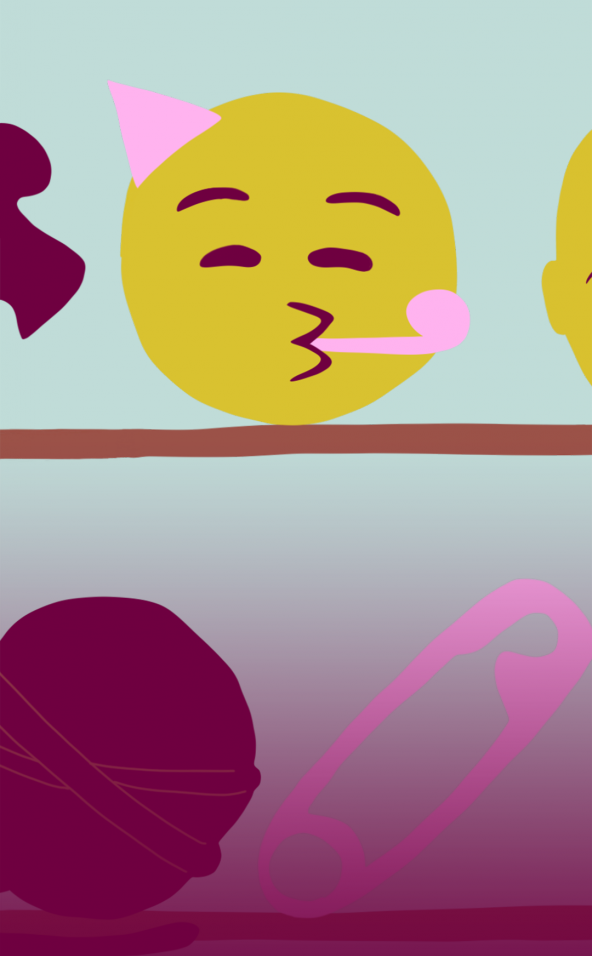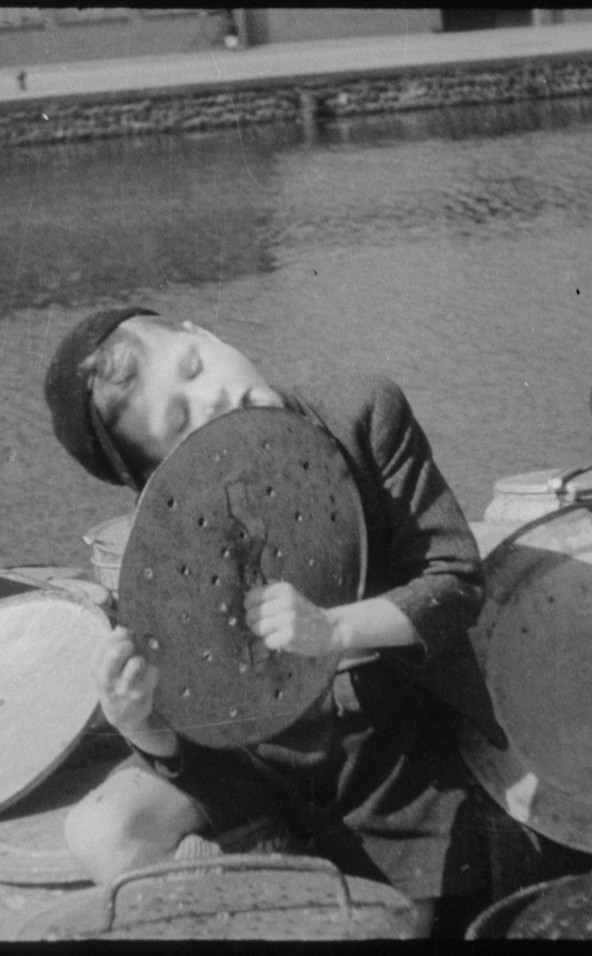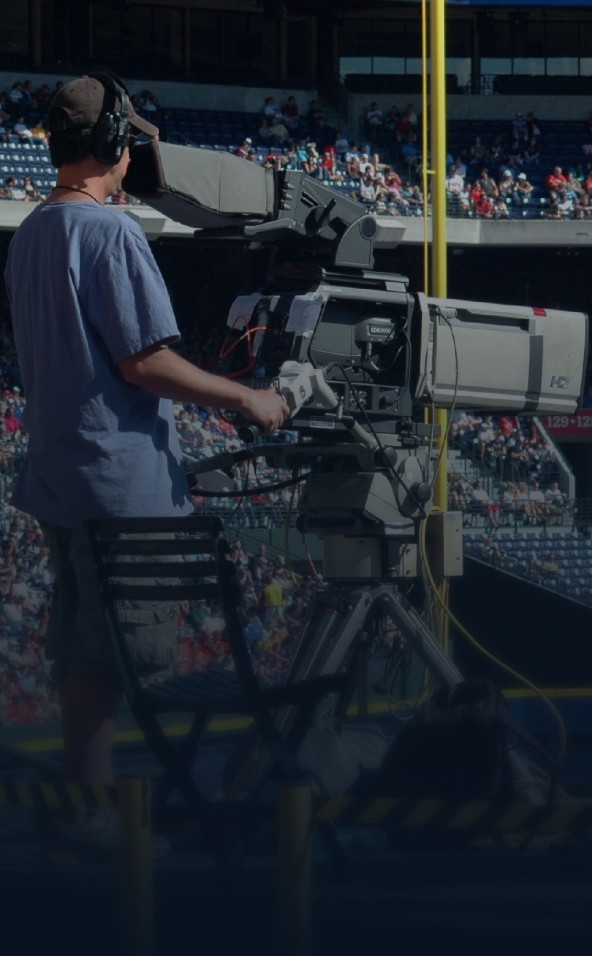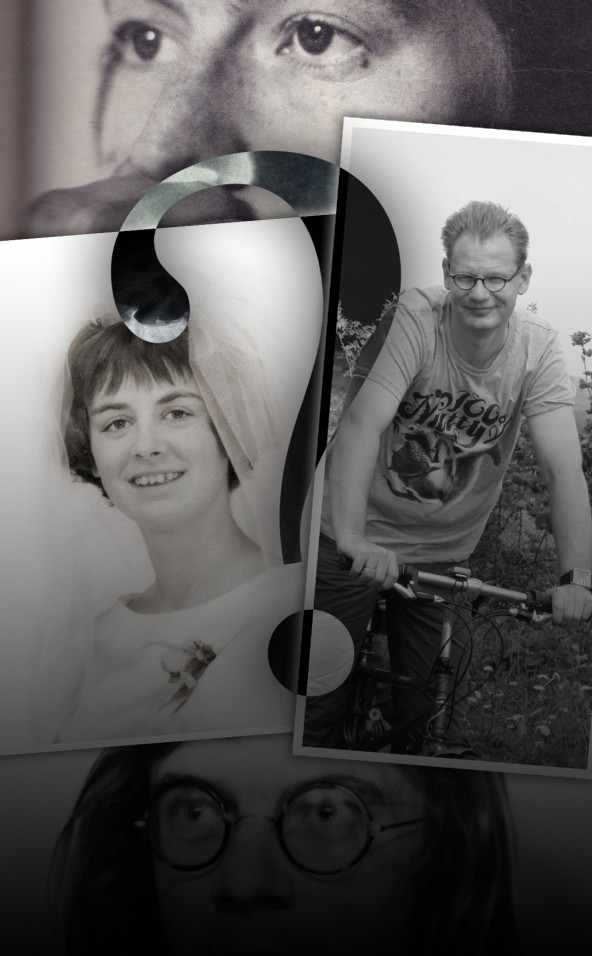

Political Games
The number of voter turnout in the Netherlands has been unsteady for years. Encouraging people to research and participate in a democracy has always been a challenge, because how can you make legislation and plans exciting? In this TILT we’ll take you on a digital journey through some of the political video games and software used to encourage people to become politically aware in the Netherlands. These games can be viewed as time-capsules of political era’s and some listed here are part of our games-archive at Sound & Vision.
Later lezen

Hollanditis
Hollanditis was released in 1985 by Radarsoft and programmed by John Vanderaart. This text-adventure is set against the backdrop of the peace movement and the placement of nuclear missiles across Europe. By typing out your actions, you can either encourage or discourage the placement of missiles across Europe. This makes it a fairly unique game, because you can influence the outcome of the game yourself. At the time, the game wasn’t just topical, but also popular because of its cheap price compared to other games. Today however, it is a unique historical source that reflects on how involved people were with regards to this political topic.

Historical Context
The Dutch Political Climate in the 1980's.
In the second half of the 1970’s, the Soviet-Union deployed 20 long-range missiles that were capable of reaching West-Europe. NATO wanted to place multiple cruise-missiles across Europe as a response, including in the Netherlands. This outraged civilians and led to the protest for peace in Amsterdam on november 21st 1981. During this protest more than 400.000 demonstrated against these NATO-proposals. The American historian Walter Laqueur coined the term “Hollanditis”, signifying the rise of new neutrality, widespread pacifism, and mass opposition to nuclear armament in some European countries in response to the missile deployments.

In Hollanditis you travel around as Heinrich Glühwein and talk to citizens and lobbyists across Europe. You can encourage them to place more cruise missiles or to disarm these weapons. The game relies on the use of the F.A.I.T.A.C.C.O.M.P.L.I., a mechanic that allows you to judge the facts on their own terms.

Stemwijzer
It’s near impossible to think about elections with considering de Stemwijzer (Voting Advisor). Originally published as a book in collaboration with the national newspaper Trouw and the Center for Political Participation (ProDemos), this software is used by millions of people during election times to determine which political party aligns with their personal opinions. The first digital version of the Stemwijzer appeared in 1991, but has since then evolved with the times. From a floppy diskette to a CD-ROM, to a page on “the digital city” and since 2002 available as a public online website.

By giving an answer to several statements that relate to political decisions, Stemwijzer provides insight into how the Dutch political parties think about societal issues. Thanks to this, you are presented with an overview of which political party alligns closest to your views.

Fun fact! The digital Voting Advisor in 1998 was introduced as a computer game to help voters.

Historical Context
The early 2000's
In 2006 the VVD-party needed to work on improving their popularity. During the municipal elections of 2006 the party lost about 1.5% of the votes. Jozias van Aartsen withdrew from the party and made way for a battle between two new party leaders: Rita Verdonk and Mark Rutte. While Rita Verdonk was more popular than Mark Rutte, he managed to get elected as leader of the party. After an interview with Verdonk, in which she criticized Rutte’s leadership, she was expelled from the party. This meant that the VVD had to quickly work on Rutte’s popularity before the general elections in 2007.

Het VVD Red Nederland Spel
There was a time when Mark Rutte wasn’t yet a household name within and outside of the VVD party. Various attempts were made to boost his popularity and visibility. One of these was the videogame “Het VVD Red Nederland Spel” (The VVD saves the Netherlands game), which was developed in preparation for the 2007 general election. The game is a platformer in which you have to guide a voter to the top of het Torentje while collecting keys. These keys are required to close the treasury which fellow politician Wouter Bos is emptying. Along the way other politicians such as Ahmed Aboutaleb and Camiel Eurlings are knocking you down, as they keep waving around their “expensive legislations”.
“The VVD Saves the Netherlands Game” isn’t played with a keyboard, but by moving your mouse up, left and right. If you played the game in 2007 you were able to upload your high score to the website of the VVD.

Super Wouter
Was it meant as actual promotional material or not? On the GeenStijl-forum in 2006, a promotional video for the PVDA with Wouter Bos suddenly appeared. Based on the game Super Mario Bros., the video was a wink towards the party’s plans. As Wouter runs from left to right, he brings food and job opportunities to the poor and attempts to close the gap between the rich and the poor. Even the flagpole at the end has been changed into the rose that is part of the PVDA-logo. This tongue-in-cheek creation, shared on GeenStijl, was intended as a humorous gesture in the lead-up to the elections.

However, a myth surrounding the video emerged when it was reported that it had been taken offline due to a copyright claim by Nintendo, the copyright owner of Super Mario Bros.. The claim was made, possibly because of the game's music. Despite the copyright hiccup, the video still lives on, on the GeenStijl website. Whether it actually managed to increase votership for the PVDA remains a question to this day.

In particular the attention to detail such as the PVDA logo in the opening, the Erasmusbridge in the background and the variety of animations, makes “Super Wouter '' a unique look at the campaign during the municipal elections of 2006.

KamerGotchi
Kamergotchi, was conceived by the satirical television programZondag met Lubach team. The goal was simple: to create a better connection between the voters and the electable politicians during the general elections of 2017. In the game you open an egg, out of which one of the 19 political party leaders hatches. It’s up to the player to keep the politician alive as long as possibly by feeding it, giving it love and presenting it with ideas. "Kamergotchi" is inspired by the popular game Tamagotchi that was a hype during the 1990’s. If you had the highest score by the end of elections you could win free tickets to attend a recording of Zondag met Lubach..

KamerGotchi’s announcement went pretty viral.

KamerGotchi had a dedicated group of players. The game was created by the Zondag met Lubach editorial team, with assistance from the programmer Joost Lubach. The game was supposed to be taken offline a day after the elections, but because people kept playing the game, the creators decided to leave the servers open for three weeks longer than intended. Nowadays the game is unavailable to play on your mobile device. But thanks to the original creators, a version of the game is playable in the archive of Sound & Vision.

There are more than 19 politicians that can hatch from an egg to take care of. This version of the game at Sound & Vision runs at 5x speed so it's possible to view changes and interact with the game more easily.

Super Klaver
In the run up to the general elections in 2017, Super Mario Bros. was used once again as a template for a political game. In this case you’d control GroenLinks party leader Jesse Klaver. The game, created by Arthur Dingemans, a volunteer for GroenLinks at the time, was picked up by the national press. The game is pretty much the same as Nintendo’s original, but the enemies, Goomba’s, have been changed into far-right politician Geert Wilders. The goal in the game is to close down the coal-plants by hitting switches. Throughout the game audio samples from Jesse Klaver and Geert Wilders are played.

The game can still be played online at www.superklaver.nl

Jesse Klaver and Geert Wilders weren’t exactly wild about the game.

Historical Context
Dutch politics in the 2010's
By the end of the 2010’s, trust in the Dutch government started to decline. This was especially notable during the general elections of 2019, where a large number of new parties participated. Forum voor Democratie (Forum for democracy) participated for the first time and managed to receive a large number of seats in parliament. Scandals such as the damages caused by gas mining in Groningen and the Childcare benefits affair, caused the fall of four cabinets under the leadership of Mark Rutte in 13 years. This made a lot of Dutch voters looking for political alternatives that stood opposed to the ruling parties.

Keezer's Quest
After the success of Kamergotchi, the team of Zondag met Lubach returned with a new game. Based on the original Voting Advisor, the team wanted to create a game that could serve as an entertaining tool and help people with their voting. This became Keezer’s Quest, which is a “choose-your-own-adventure” game that takes place in a fantasy forest. Each inhabitant has a problem and the game lets you pick between two answers, all of them references to problems facing the Netherlands. For example there are wizards that would need to work longer before retirement, there are migrating forest nymphs settling in the forest and of course there’s Henk Troll, a parody on politician Henk Krol for the 50+-party.
The game was revealed by Arjen Lubach in the 13th season of Zondag met Lubach and is playable via the website www.keezersquest.nl.

In Keezer’s Quest you can create your own avatar and give you dog a name. As you walk through the forest you meet all sorts of creatures like forest nymphs, cyclopes, hunters and volcano-watchers. Everyone asks difficult questions where you need to give one of two answers. No route through the game is the same. At the end of the game you are presented with the “guild” of the party you align closest with. The game was once again developed by the team of Zondag met Lubach and programmer Joost Lubach.

Conclusion (1/3)
From the Voting Advisor to Super Klaver and from Hollanditis to The VVD Saves the Netherlands Game, the use of digital media to make people politically aware is over 35 years old. Whether it has actually influenced the voting habits of voters is hard to gauge. But what this software does do, is present a look at the party lines and problems during election times. From peace protests in the 80’s to the explosive growth of new parties in the 2010’s.

Conclusion (2/3)
That is what makes these games time capsules in their own right. While the voting habits and formations of new governments are always properly documented, these methods of communication between political parties and voters have mostly been overlooked. They might just be software that you’d only play for a few minutes in a year, but they still attempt to reach a voter in unique ways.
Whether political parties will use interactive media in future elections remains to be seen. A voting advisor in Virtual Reality? A political campaign exclusively on TikTok? Or an adventure game in the House of Representatives? There are plenty of methods still unused to get a voter politically involved.
Bekijk ook

Hoe kunnen vernieuwers en culturele makers samen een visuele taal ontwikkelen die helpt om elkaar beter te begrijpen én samen te werken, en mee te bouwen aan een nieuw verhaal over innovatie? Die vraag staat centraal tijdens Innovation Takes a Village, een online hackathon binnen het Future Forward Hackathons-programma van ekip.





